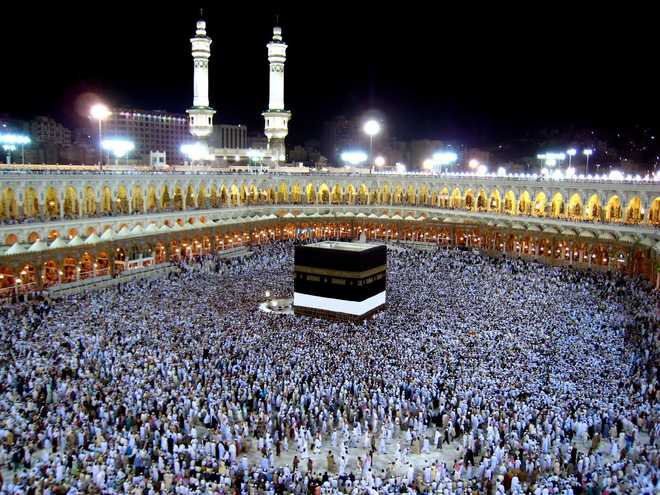Are you going on Hajj?
Brethren, let me begin by asking the opposite question: why are you not going on hajj this year? Is it because of lack of the means to do so? This indeed is a valid reason in Islam. It is they who have the means who should go on Hajj so says the Almighty (Q3: 97). […]


Brethren, let me begin by asking the opposite question: why are you not going on hajj this year? Is it because of lack of the means to do so? This indeed is a valid reason in Islam. It is they who have the means who should go on Hajj so says the Almighty (Q3: 97). An elderly woman asked me the other day at a public lecture whether she could take a loan from a bank in order to perform Hajj. My response was simple and straightforward. Loans from Nigerian Banks, or rather conventional banks, come with strings and interests. Since the latter is forbidden by the Almighty any attempt to go against this divine injunction no matter the purpose for which the loan is taken would be tantamount to using urine to take bath. I therefore counseled the woman to live within her means. The measurement of the poor on the day of resurrection would be lighter than that of the rich!
But that brother does not intend to perform this year’s hajj for another reason: he has simply not given a thought to its urgency at all. He is of the view that those who should go to Hajj are the elderly ones, those nearing the end of their ‘term’ on earth. Each time the sun rises in the horizon, he looks at his image in the mirror. He soon comes to the conclusion that he still has lots of time left on the planet earth. “This guy’s still young,” he tells himself. Though he has the means to go on hajj this year, he chooses to postpone it till another year. This brother, dear brethren, is running a great risk. Should death come calling tomorrow, he would have no excuse to present to the Almighty for his inability to discharge the responsibility.
What about our brethren in corporate outfits who constantly plead busy schedules in the offices as excuse? Such is the case of a younger colleague. Face to face with the possibility that demands of work in the office would not afford him the luxury of fulfilling his religious obligations, of fasting the best way he should, of performing neither the Umrah nor the Hajj, he seized upon the only window the ‘oga at the top’ opened to all the workers. He, therefore, schedules his annual leave to coincide with either the Ramadan or Hajj periods. In other words, dear brethren, for each location and station we find ourselves, a more critical engagement and analyses would show us that there are opportunities we can still explore to make our situation better. Our accounting on the day of resurrection would therefore be patterned not only along the lines of such opportunities but also based on how we relate to our Creator.
Let us now engage our initial question. Do you plan to go on Hajj this year? If your response is in the affirmative, then begin by acknowledging the opportunity as a privilege from the Almighty. Experience and knowledge tell us that it is not every good thing that we desire in life that we achieve; not every Muslim shall have the opportunity, no matter the urge and desire, to visit the Kaaba.
Secondly ensure you clear your account with your Creator and do same with your fellow creatures. In other words, intending pilgrims should repent of all sins they have committed before stepping out of their homes. If the sin is an infraction against the injunction of the Almighty, a sin you committed and about which only the Almighty is a witness you need to seek His forgiveness, regret deeply for the error and enter a covenant with your creator that should He preserve your life till you return from Hajj, that you would not travel that same heinous path again.
Now if the sin you committed is against a fellow human being; then you have two pathways to follow. First, if the sin has to do with the honour (‘ird) of the person in question, you should seek the latter’s forgiveness in person before you begin to seek the forgiveness of your Creator. Now, if the sin is material, perhaps its money you unjustly appropriated or something that you know does not belong to you, you have to return the item to its owner, seek his forgiveness and thereafter, seek the redemption of your Creator. You should do all these because your Hajj would likely be invalid while somebody’s property is unjustly under your care. You cannot expect the blessings of the Almighty while your soul is manacled by the iniquitous acquisition of worldly properties and gains.
